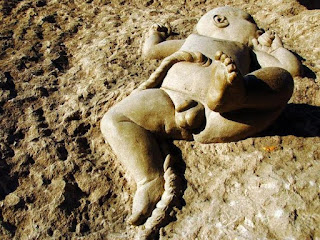Bethany Beachum
Should we call the workshop Asset Based Community Development or should we call it Desarrollo Basado en Recursos Comunitario? ABCD or DBRC? Should it be named in English or Spanish?
Thus the first half hour of this workshop in Nicaragua, led by Roland Vandenburg of Calgary, was spent discussing the name of the workshop, all before Roland even presented what the workshop was actually about. By the time the name Desarrollo Basado en Recursos Comunitario (, or DBRC), was adopted, every person attending felt they had some personal ownership in the workshop. What a great beginning to a two-day training session designed to change a fundamental mindset. First, the mindset of the workshop participant needed to be changed, then they would be ready to go out into their communities and work on changing mindsets there!
In the model of DBRC, or Asset Based Community Development, the community developer goes into a community looking for strengths. Working with the community members, together they identify the strengths. Relationships are established as they look closely at the community through the eyes of the people who live within it. The community developer and the community members all come to recognize the strengths of the individuals in the community and the strengths of the collective community. And everyone understands that the community members will be intimately involved in whatever plan of action is developed for the place where they live.
This model is in direct opposition to the traditional model that starts by naming all the problems in a place. Communities are identified and may even work with the community developer, but the perspective is one of looking for problems that can be addressed. This can set up a negative mindset which can lead to the community feeling overwhelmed by their problems and unable to see solutions without dependence on outside help. The Asset Based Community Development model has a different point of view, a different approach, and it produces a very different attitude in all involved.
This workshop, held at the Nehemiah Center in Managua, Nicaragua, was preparing 24 Nicaraguans, all community leaders, to work in their own communities using the techniques presented by Roland. During the workshop the participants designed a survey to use in discovering the strengths of individuals in the community and of the community as a whole. In the afternoon session they divided into small working groups to hammer out 8 questions using clear and appropriate language. The wording had to be understandable and still clearly explain the asset approach. It was very encouraging that everyone at the workshop also was concerned about preserving the dignity of every survey participant. No question was to be complicated or demeaning. Once the survey questions were agreed upon, the group considered the initial request to ask community members to participate in the survey. They agreed a friendly, non-threatening approach was critical.
The following day all was put to the test. The entire group went to Leon, approximately 90 km away, and visited one of the neighborhood communities where about 60 families live along the main street. The newly-trained community developers paired up to conduct the surveys. Approximately 40 homes were contacted and no one turned the surveyors away, indicating a great success for the friendly approach!
At the end of the day the group discussed the results of the surveys. Many of the people surveyed were initially perplexed by the question, “What do you have of value in your house?” Many people first replied that they had very little of value. But when pressed to consider what resources they had--water, furniture, dishes, guard dogs--they realized they had quite a list. With patience and encouragement they began to change their mindset into one of seeing their assets, and eventually they came up with long lists of resources in both their homes and their communities.
Many of the people surveyed were grateful for the opportunity to participate. One woman told the community developer that she now realized she really did have a lot to be grateful for. What an example of a changed mindset! At the conclusion of some of the surveys, prayers were shared for the homes, families and the community.
This survey technique of DBRC--Asset Based Community Development--will be duplicated in the local communities of the participants of the workshop. The community developers will develop relationships with the families in their communities, and together they will work to identify the strengths of individuals and the community as they plan for a better future. In the words of one of the participants, “We can help our community see that they are important in the eyes of God and they have great resources provided by God.”


.JPG)
.JPG)
.jpg)
.jpg)
(b).jpg)







